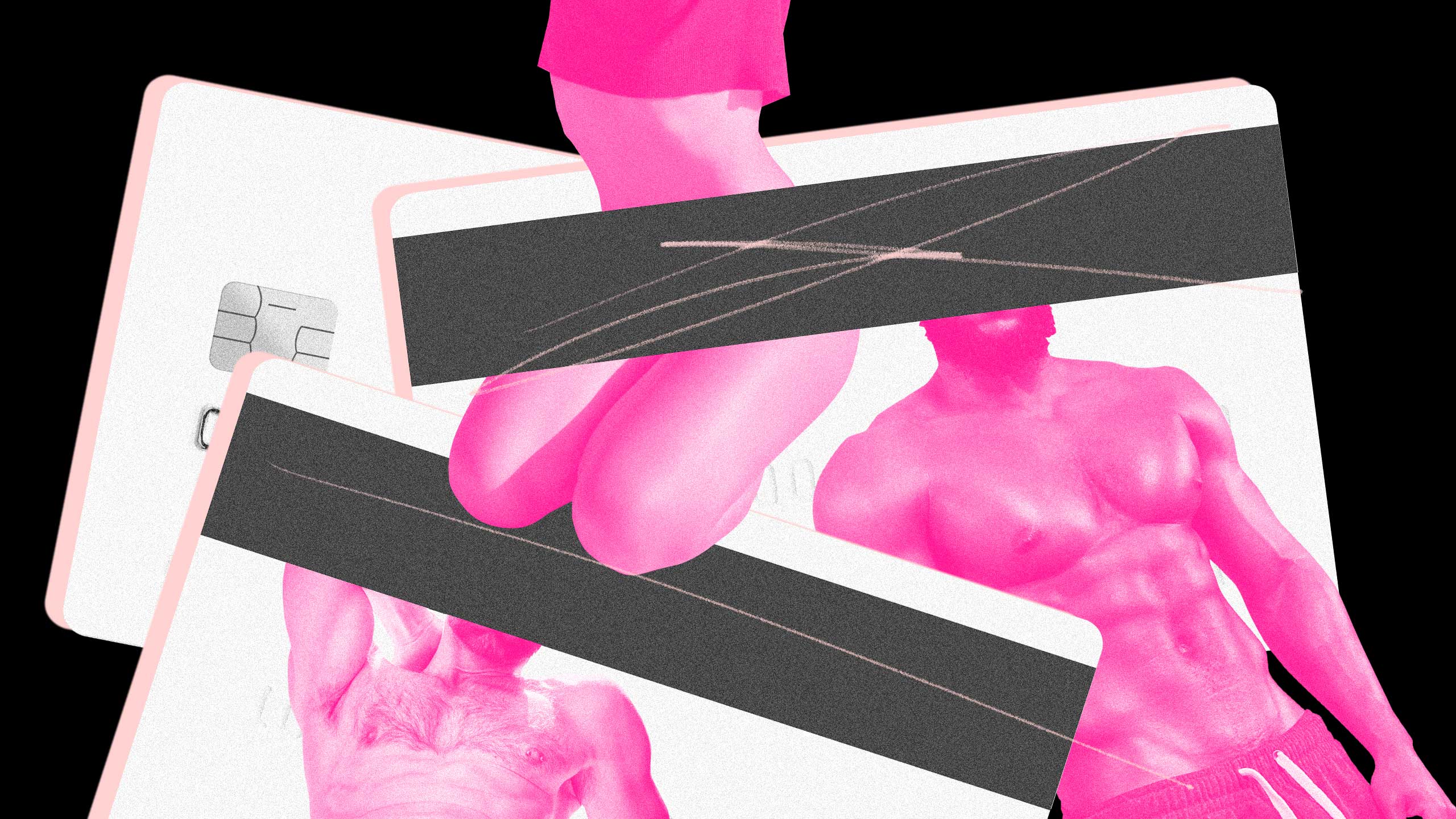OnlyFans may have backed down from plans to ban sexually explicit content from its site, but the fight is far from over.
Last week, a group of LGBTQ2S+ sex workers, community members and allies published an open letter calling on Mastercard to rescind their proposed plan to require websites that host sexual content to provide evidence of consent and to verify the age and identity of any creators, participants and purchasers. It’s the latest controversial online policy targeting sex workers and their livelihoods.
On Sep. 1, the group co-opted the #AcceptanceMatters hashtag to call out Mastercard and other credit card companies for discrimination and superficial support. Mastercard has won awards for its #AcceptanceMatters ad campaign in support of BIPOC and LGBTQ2S+ communities, and the group says they wanted to point out the hypocrisy.
“While MasterCard enjoyed years of praise for rainbow branded campaigns, LGBTQ+ Sex Workers continued experiencing losses in the banking war on porn Mastercard leads,” the letter reads. “In 2016 we documented over 150 different banks, payment platforms, and other platforms that explicitly discriminate against sex workers.”
The hashtag takeover was part of a larger protest against banking discrimination of sex workers, which included in-person demonstrations across the United States.
Here’s what you need to know.
What happened with OnlyFans?
On Aug. 19 the popular platform announced that on Oct. 1, it would effectively cut off most of the explicit adult content it has become famous for.
OnlyFans operates an individual subscription service that has become popular among sex workers as a way to support their livelihoods. The involvement of sex workers on the platform has boosted it into a multi-billion dollar enterprise. The platform has thrived during the COVID-19 pandemic, and reports 1.5 million current content creators, 150 million registered users and USD$5 billion paid annually to creators.
The company blamed the shift on banking providers (like Mastercard) and their similar policies, and argued that banks made it difficult for the platform to transfer money to creators. Many people have speculated that the hesitancy came from several reports regarding illegal content and child porn on the site. (Last year, several credit card companies severed ties with Pornhub following a New York Times story accusing the site of hosting videos of child abuse and nonconsensual sexual activity.)
However, sex workers point out that the vast majority of content on OnlyFans is fully legal, and its strict verification process allows for that. In fact, sites that are supposedly cracking down on porn are actually where the vast majority of the Internet’s child porn and illegal content exist.
On Aug. 25, OnlyFans walked back on the planned ban, saying the company had “secured assurances necessary to support our diverse creator community.”
Why are sex workers calling out Mastercard and other payment platforms, and what are they asking for?
Mastercard still plans to implement new adult content policies on Oct. 15 that will restrict payments for things like sex work and porn. (Its policy is one of the factors that led to the OnlyFans policy in the first place.)
The complicated Mastercard policy will force providers to adhere to strict regulations around documented consent and age in the adult content they’re producing if they want to be able to accept credit card payment, and is ostensibly intended to target child porn and sexual abuse on the internet.
However, sex workers say it will only hurt them and their livelihoods.
“Adult content is discriminated against unfairly while the majority of abuse goes ignored,” the open letter reads. “Mastercard’s policies are intentionally written to require only adult sites to adhere to business-ending proposals like requiring paying moderators for full pre-review of all user content, something that is absolutely impossible in an economy where not even every sex worker makes minimum wage for the creation of such content.”
The signees of the letter issued several demands to Mastercard, including a halt to the planned adult content policy, the creation of an alternative holistic survivor-centred policy and a seat at the table for sex workers going forward.
“Both survivors of abuse and sex workers—many of whom are the same people—deserve better than policies that sidestep nuanced internet-wide harm reduction in favor of scapegoating a specific category of highly stigmatized labour,” the letter reads.
By co-opting the #AcceptanceMatters hashtag, the groups says they’re specifically calling out Mastercard’s hypocrisy, and calling on them to actually support queer, trans, BIPOC and disabled communities in sex work.
“This is not an endorsement of the #AcceptanceMatters hashtag, which can be seen as a coldly calculating misappropriation of Black Lives Matter by a corporate entity, but a statement that we do not accept these PR campaigns as a substitution for ending discrimination,” reads the letter.
Where else is explicit content being censored?
While it might feel like conversations over sexually explicit content online are blowing up now, it’s been an issue for a while.
Tumblr memorably banned explicit content from its platform back in December 2018, and it tanked the platform. Turns out, Tumblr without porn—and a Tumblr where everything from breakfast to the actual policy announcement is flagged as NSFW—is not a Tumblr a lot of people want.
Around the same time, Patreon began suspending the accounts of creators producing sexual content, following new guidelines it released in 2017.
And finally, eBay is also cracking down on explicit content—a move that’s negatively impacting our archive of queer history.


 Why you can trust Xtra
Why you can trust Xtra


